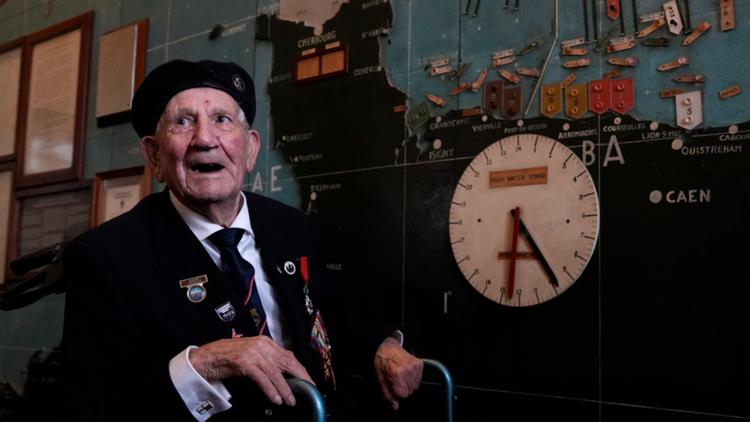Chandler served aboard a British motor torpedo boat that was part of a flotilla of British vessels that escorted U.S. Army soldiers to Omaha and Utah beaches.


LONDON, UK — D-Day veteran George Chandler, who sought to counter sometimes glamorous depictions of the landings by recalling the horrors he witnessed escorting U.S. troops to the beaches of northern France as a young Royal Navy gunner, has died, his family said. He was 99.
Chandler, who served aboard a British motor torpedo boat during the invasion of Normandy that began on June 6, 1944, was one of the dwindling cohort of D-Day survivors who gathered last summer to commemorate the 80th anniversary of the landings.
With even the youngest veterans nearing their 100th birthdays, Chandler said he wanted to tell his story to make sure younger people understood the reality of war, not the sanitized version that appears in many history books.
“Let me assure you, what you read in those silly books that have been written about D-Day are absolute crap,” he said in June at an event at Southwick House, on the south coast of England, the Allied headquarters during the Battle of Normandy. “It’s a load of old rubbish. I was there, how can I forget it?’’
Chandler’s torpedo boat was part of a flotilla of British vessels that escorted U.S. Army soldiers to Omaha and Utah beaches during the Iandings.
He was on board as the sun rose on June 6, revealing an armada of ships “of all shapes and sizes” stretching from horizon to horizon as waves of aircraft flew overhead. Unfortunately, he said, a navigation error meant the troops he was escorting landed too far to the west and they were mowed down as they hit the beaches, Chandler said.
“It’s a very sad memory because I watched young American Rangers get shot, slaughtered — and they were young. I was 19 at the time. These kids were younger than me.”
“I will never forget the sight of seeing those brave young men fighting and dying as they struggled to get off the beach,” he added.
After spending three months escorting troops across the English Channel, Chandler’s torpedo boat was transferred to the Adriatic, where it struck a mine and sank on April 10, 1945. Nineteen of the 31 crewmen were killed.
The family intends to scatter some of his ashes in the Adriatic so he can be with his mates who are buried at sea. Chandler died of pneumonia on Oct. 19, his son Paul said.
Chandler, who went on to a long career in the General Post Office and British Telecommunications, lost his sight in later life.
He had planned to lead the Blind Veterans UK contingent during Britain’s annual Remembrance Sunday ceremonies next month in central London accompanied by his granddaughters, Lucy Tucknott, 31, and Faye West, 28. The women plan to march in his place, joining the thousands of veterans who will troop past the Cenotaph, Britain’s national war memorial.
.png)









 English (US) ·
English (US) ·